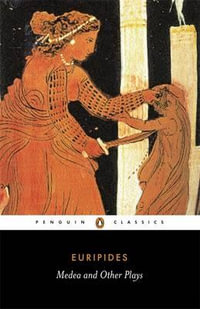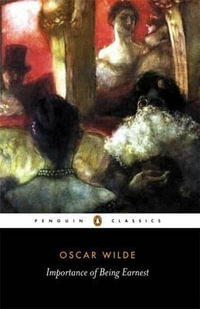
The Bacchae and Other Plays
The Bacchae/ Phoenician Women/ Orestes
By: Euripides
Paperback | 27 February 2006 | Edition Number 1
At a Glance
Paperback
RRP $22.99
$22.90
Aims to ship in 5 to 10 business days
When will this arrive by?
Enter delivery postcode to estimate
ISBN: 9780140447262
ISBN-10: 0140447261
Series: Penguin Classics
Published: 27th February 2006
Format: Paperback
Language: English
Number of Pages: 432
Audience: General Adult
For Ages: 18+ years old
Publisher: Penguin UK
Country of Publication: GB
Edition Number: 1
Dimensions (cm): 2.6 x 12.9 x 19.8
Weight (kg): 0.31
Shipping
| Standard Shipping | Express Shipping | |
|---|---|---|
| Metro postcodes: | $9.99 | $14.95 |
| Regional postcodes: | $9.99 | $14.95 |
| Rural postcodes: | $9.99 | $14.95 |
How to return your order
At Booktopia, we offer hassle-free returns in accordance with our returns policy. If you wish to return an item, please get in touch with Booktopia Customer Care.
Additional postage charges may be applicable.
Defective items
If there is a problem with any of the items received for your order then the Booktopia Customer Care team is ready to assist you.
For more info please visit our Help Centre.
You Can Find This Book In
This product is categorised by
- Non-FictionLiterature, Poetry & PlaysPlays
- Non-FictionArts & EntertainmentDance & Other Performing Arts
- FictionClassic FictionPenguin Black Classics Penguin Black Classics Plays
- Non-FictionLiterature, Poetry & PlaysHistory & Criticism of LiteratureLiterary Studies of Plays & Playwrights
- Non-FictionLiterature, Poetry & PlaysAnthologies (non-poetry)
- Non-FictionLiterature, Poetry & PlaysPoetry























